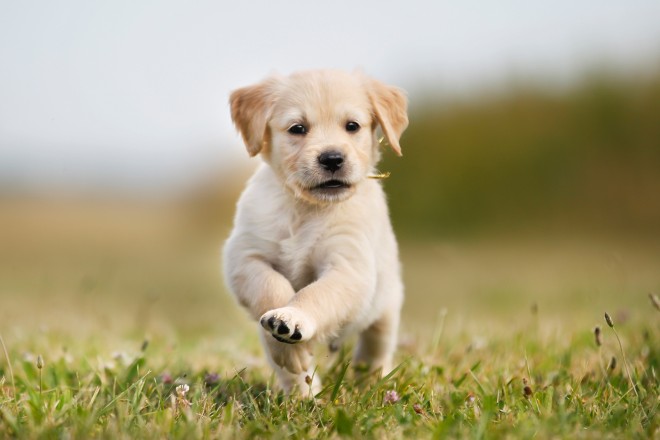

One of the first considerations that potential new dog owners need to think about is if they would rather have a male or a female dog. Understandably, the behaviour, thought processes and general traits of dogs are affected by a lot of different factors, and sex is just one of these; but it is also one of the main ones, and a very important decision to get right. While many dog owners do not have a personal preference and would be equally happy with a dog of either sex, nevertheless, it is important to understand the potential differences between male and female dog behaviour.
While spaying and neutering goes some way towards closing the gap between male and female dogs and the respective differences in their core traits, these surgeries do not entirely negate the basic gender drives of the dog, and even neutered male dogs will remain rather different to females after their op.
If you are considering taking on the ownership of a male dog, this article will address some of the most commonly asked questions about what can be expected from male dog behaviour.
Uncastrated male dogs are almost certainly likely to attempt to wander off in search of a mate at some point, specifically, if there is a female dog in heat somewhere in the area having an effect on them. Male dogs are also very tenacious about getting out to find a mate, and will often go to great lengths to do so, such as chewing through leads and ropes, digging out under fences, or bolting off when you open the door.
Neutering male dogs reduces the urge to roam in search of a mate in around 90% of dogs, but some dogs will retain their wandering instincts, and may continue to go off in search of entertainment even after neutering.
The hormones responsible for the breeding urge also affect male dogs in other ways, and an un-neutered male dog may potentially become aggressive with other male dogs if they see them as competition. Un-neutered male dogs are also more likely to be dominant than female dogs, and possibly more boisterous and challenging to keep, but once neutered, male dogs are unlikely to display any different traits than females, depending of course on the other factors that affect temperament. Aggressive behaviour towards other male dogs is negated by neutering in around 75% of cases.
There is certainly not one canine sex that tops the tables of the intelligence or trainability stakes, but male and female dogs learn and develop at different rates.
Female dogs tend to mature faster than male dogs, meaning that during their younger years, female dogs are likely to be more trainable, compliant and willing to cooperate than males when it comes to training. However, male dogs do catch up quickly as they age, and once adult, there should be no sex-specific differences between dogs of the same breed in terms of how amenable they are to training.
One thing to bear in mind, however, is that an un-neutered male dog may have a tendency to stubbornness, lack of cooperation and generally not concentrating very hard on what they are doing if they are being affected by the presence of a bitch in heat!
One area where male dogs really stand out from females is in their propensity to scent mark, meaning that it will often prove very important to the dog to pee on a lot of things and distribute their own mark around their environment. While this behaviour does drop off somewhat after neutering, even neutered male dogs have a much greater tendency to scent mark than females.
This is unlikely to pose a problem providing that your male dog only scent marks outside of the home, but if they are also apt to behave territorially within the home and scent mark indoors too, this can soon turn into a real problem!
When your young male dog matures, the testosterone levels in their body will begin to rise, triggering the urge to hump things and satisfy their natural urge to breed. Young male dogs are often not at all selective about what they hump, and may single out a favourite toy, item of furniture, or if you are unlucky, someone’s leg.
Neutering removes or negates the drive towards this type of behaviour in the vast majority of male dogs, but not all of them; so both neutered and un-neutered male dogs may have a tendency to hump, if this type of behaviour floats their boat! This is something that female dogs do not do, or at least, not as standard!
 The Importance Of Annual Health Checks For Your Dog
The Importance Of
The Importance Of Annual Health Checks For Your Dog
The Importance Of
 Dog walking and dog boarding services in Toronto
Dog walking and dog boarding services in Toronto
Dog walking and dog boarding services in Toronto
Dog walking and dog boarding services in Toronto
 Five Breeds Of Dog That Can Live Happily With Cats
Five Breeds Of Do
Five Breeds Of Dog That Can Live Happily With Cats
Five Breeds Of Do
 Species Of Turtle
Species Of Turtle
Species Of Turtle
Species Of Turtle
 10 Popular Mixed Breed Dogs
10 Popular Mixed
10 Popular Mixed Breed Dogs
10 Popular Mixed
Copyright © 2005-2016 Pet Information All Rights Reserved
Contact us: www162date@outlook.com